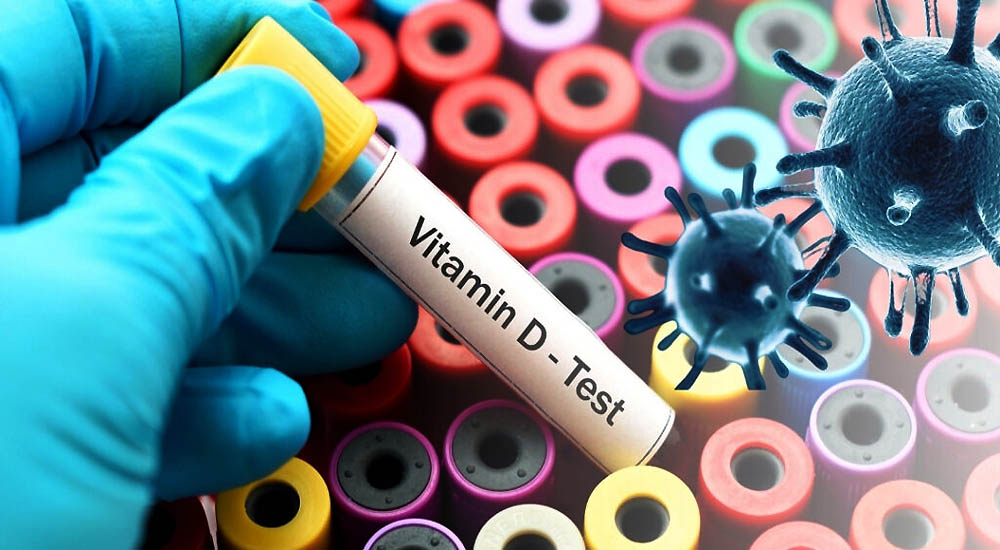Healthy Eating on a Budget

Healthy Eating on a Budget
What’s the true cost of unhealthy food?
It goes beyond its price tag.
Obese people are 2.5 times more likely to require drugs prescribed for cardiovascular and circulation disorders.
e.g. Healthcare costs related to obesity are $118 billion per year.
Our life expectancy is declining for the first time in human history
From the New England Journal of Medicine: we spend $20,000 per person for each extra year of life gained from interventions like drugs and surgery.
What if the $20,000 per year was given to each person during his lifetime to support better nutrition and lifestyle?
One in 3 children born today will be diabetic in their lifetime due to their diet choices. It’s time that we take educating our population more seriously.
We need to look at the big picture.
Is cheap “fast” food truly less expensive in the long run?
We spend $30 billion a year to subsidize corn and soy production. Those foods become high-fructose corn syrup and hydrogenated soybean oil (trans fats) – the foundation of almost all fast food and processed foods. They are the foods at the foundation of obesity, heart disease, and diabetes.
We eat more than 50 percent of our meals out of the home compared to less than 2 percent 100 years ago.
Most of our “home” meals are produced in plants, not grown on plants, and from a food engineer’s lab, not a farmer’s field.
Cooking and eating whole fresh foods at home, can be cheaper, more fun, and simpler than you think.
A fast-food burger and fries are cheap in the short term. But the total cost is more than what you pay in the immediate moment, there’s a cumulative cost to fast food and what the decision to eat it cost you over a lifetime.
Unhealthy foods lead to skyrocketing health care costs: medical visits, co-pays, prescription drugs
There are non-economic “costs” too: reduced ability to enjoy life in the moment due to fatigue, sleep issues, headaches, obesity, depression, and more.
Eating well now allows you and your family to enjoy each day to its fullest.
Inflammation is at the root of all degenerative diseases
What causes inflammation?
- High amounts of simple carbs in the diet
- Bad fats
- Food sensitivities
- Toxins
- Sluggish liver
- Infections
- Stress
- Lack of exercise
Benefits of dietary Lignans
As Americans, we are poor at choosing to eat some very healthy and inexpensive foods. Take beans and seeds as an example.
- Lignans are polyphenols found in plants.
- Polyphenols are a category of plant compounds that offers various health benefits including:
- boosting digestion and brain health, protecting against heart disease, type 2 diabetes, and certain cancers.
- Flaxseeds are the richest dietary source of lignan precursors.
Lignan precursors are found in a wide variety of plant-based foods, including seeds (pumpkin, sunflower), beans (a type of legume), legumes (peas, lentils, peanuts), fruit (berries, apricots), and vegetables (kale, broccoli, cabbage, Brussels).
Healthy inexpensive foods to optimize body and brain function
- A higher fiber diet yields a healthier gut and improved cognitive function
- EPA and DHA from algae
- Prebiotics-fruits, vegetables, beans, and legumes (lentils, peas)
- Herbs like turmeric, basil, rosemary, basil, thyme, ginger, cumin, pepper
Side effects of artificial sweeteners
Artificial sweeteners are a terrible idea for anyone. Their lack of calories means nothing as compared to the deleterious results they inflict upon your health and your brain.
- 10-year study: 1 or more soft drinks per day increased dementia risk 2.5X.
- 3X increased risk of Alzheimer’s
- 3X risk of stroke
- Headaches, migraines
- Seizures
- Irritability
- Severe depression
- Hyperactivity in children
- Increase the risk of obesity and type 2 diabetes
- Type 2 diabetes 4x your risk of dementia.
- Artificial sweeteners alter gut bacteria (change array and diversity of gut bacteria, increasing inflammation)
- Splenda cuts good bacteria in half
Symptoms of Vitamin B12 Deficiency
It’s good to know the symptoms of a B12 deficiency, but do realize that other conditions can cause these symptoms as well. Consult your doctor to ensure you have the correct underlying cause of any symptom troubling you.
- Weakness, tiredness, or light-headedness
- Heart palpitations and shortness of breath
- Pale skin
- A smooth tongue
- Constipation, diarrhea, loss of appetite, or gas
- Nerve problems like numbness or tingling, muscle weakness, and problems walking
A plant-based diet and B12 deficiency
A strong plant-based diet is healthy and affordable. The main deficiency to watch out for is vitamin B12. Fortunately, a liquid B12 is very inexpensive.
For pennies per week, you can avoid any deficiency. 2500 micrograms sublingual once a week works for most because your body holds on to it.
Meat eaters too can suffer deficiency: The Framingham Offspring Study discovered 1 in 6 meat-eaters to be B12-deficient.
Those with the highest B12 levels in the study were taking supplements and eating fortified foods.
The only caveat with B12 levels is your genetics. If you seem to have symptoms of deficiency despite taking it, you could need a more sophisticated form of B12 or vitamin co-factors to assist you in absorption. This can occur in meat-eaters as well.
We can help you obtain genetic testing if needed.
A happy microbiome = a healthy gut and body
The information from the 39 trillion bacteria making up our microbiome continues to come in from research. There’s much more to learn, but what we do know is very exciting and impactful for your health.
When the bacteria in your gut are of the healthy variety, you’ll have less inflammation, less disease, less neurological inflammation, better-balanced hormones and it protects your brain.
Wow!
What can you do diet-wise to keep your microbiome happy?
- Whole food plant-based diet
- High fiber diet – 97% of Americans don’t get enough fiber. Higher fiber yielded greater brain accuracy and cognitive function
- Plant-based protein predominantly – avoid collagen since it’s not a complete protein
- Healthy fats – rich in anti-inflammatory omega 3s. Take EPA and DHA for brain health, algae is a good source and mercury-free.
- 7-9 servings of fruits and vegetables
- Prebiotics – fruits, vegetables, beans, and legumes (resistant starch)
- Probiotics – vary what you take
- Adequate protein, most plants, fish 2x/week
- think “SMASH” – salmon, mackerel, anchovies, sardines, and herring
- No sugar, no artificial sweeteners
- Avoid processed foods
- No GMO, organic if possible
- Herbs like turmeric, ginger, rosemary, cumin, basil, thyme, black pepper
Benefits of Mediterranean diet post-WW II
We’ve all heard that the Mediterranean diet is a healthy one. But visit a country like Greece today and you’ll see the American and western influence alive and well sadly.
It turns out that the Mediterranean diet was a healthy one about 80 years ago, just post World War II.
Here are the statistics:
In Crete, the population was 90% plant-based. They enjoyed these attributes of health:
- Fatal heart attacks 20X lower than the U.S.
- Reduced stroke
- Lowest cancer rates
- Lowest mortality rate.
- Reduced diabetes
- Reduced depression
- Lower inflammation
- Meat is eaten once per week or every 2 weeks.
The wealthy Crete were heavy meat eaters and their poor health proved it:
- Increased risk of heart disease, similar to the U.S.
- More stroke, cancer, diabetes, inflammation, and death.
- Meat is eaten daily.
What you should eat every day and what it costs
3 servings beans – ¼ cup hummus, ½ cup bean soup, lentils or tofu [$.07 dry vs $.40 canned]
1 serving berries – ½ cup fresh or frozen [$.15 frozen]
3 other fruits – 1 medium or 1 cup cut apple, melon, citrus [$.23]
1 serving cruciferous veggies – 1/2 cup [$.71 frozen, $.81 fresh]
2 servings greens – 1 cup raw, ½ cup cooked kale, arugula, spinach
2 servings other veggies – 1 cup raw if leafy, ½ cup raw or cooked non-leafy. Asparagus, peppers, carrot [$.24 fresh carrots]
1 serving flaxseeds – 1 tablespoon ground [$.35]
1 serving nuts or seeds – 2 tablespoons nut butter or ¼ cup fresh nuts or seeds [$.74]
1 serving spices – ¼ teaspoon basil, chili powder, curry, ginger
3 servings whole grains – ½ cup cooked quinoa, rice, 3 cups popcorn [$.12]
5 – 12 oz servings water or tea
Exercise – 45 minutes of moderate activity as many days as possible [FREE!]
What not to eat every day
Sodas – avoid completely
Sugar – cancer loves sugar. It’s worth it to get refined sugar out of your diet. I promise the cravings go away pretty quickly.
Processed snack foods
Fast food
Dairy products – they are high IGF-1 which increases your cancer risk
Beef – saturated fat, heart risk
Chicken – saturated fat on par with beek, also high in arsenic and bacterial contamination
Eggs – can create high TMAO levels (a compound derived from gut bacteria) leading to increased heart disease and stroke risk.
Can you occasionally eat animal protein? Yes. We make that decision depends on your health status
The experts recommend “condiment-size” amounts of animal protein other than fish.
Best fish?
- SMASH – salmon, mackerel, anchovies, sardines, and herring
- Amount? 2x/week maximum
Saving money on good food
Inexpensive good food
- Cooking at home
- Batch cooking and freezing
- Beans
- Rice
- Vegetables – frozen
- Fruit – frozen
- Water vs. soda or juice
- Unpopped popcorn – buy in bulk and pop at home with an inexpensive air popper.
- “Nice” cream – frozen bananas, a blender, and fruit or another flavor of your choice. There are many recipes online. It’s very fun to make.
Expensive bad food
- Eating out – quality poor
- Steak
- Sodas
- Burgers
- Chicken
- Fruit juice
- Cookies
- Crackers
- Ice cream
Solutions for better health
Avoid processed foods thereby decreasing inflammation
Eat more fiber – 9 servings of fruits and vegetables, also seeds, beans, and legumes daily. Fiber decreases inflammation and balances the gut microbiome
Personalized testing to optimize body function: including gut health, immune function, and hormonal balance.
Analyze your genetics as appropriate. Some of us have strong familial predispositions towards less than optimal health. This can be remedied
Exercise 45 minutes each day, minimally 5-6 days per week.
Hydrate!
Getting to the root cause
We’re all about getting to the underlying root cause preventing you from enjoying your best health.
When new patients ask what we “do”, I realize it’s all about a few key factors:
We appreciate the body knows how to health itself. We also realize that when the body has symptoms, that’s its way of letting you know it’s overwhelmed and cannot heal itself. The next step simply involves discovering what the key systems are that are overwhelmed or over-stressed and what, specifically is driving that state.
It sounds simple, and it typically is.
Tenacity comes into play when it isn’t easy, but we are very comfortable with our status of solving complex cases that no one knows how to address.
The list that follows is the major items on the list we delve into when identifying the root cause of malfunction and resulting symptoms.
- Diet
- Lab tests
- Food sensitivities
- Health of microbiome
- Leaky gut
- Infections
- Toxins – mold, heavy metals, etc.
- Stress and sex hormones
- Genetics
Let’s get you the help you need
It’s not difficult. There are a few simple steps we need to take.
Do you need help with your health?
We have the diagnostic and testing tools, the clinical experience, and a different medical approach to discovering the root cause of why you have the symptoms that are bothering you. As long as you are ready to make some dietary and lifestyle changes, we can help you. We will "hold your hand" through the changes, step by step, to make each step an easy one. We are located in Clearwater, FL, at 1000 S Ft Harrison, at the corner of Ft. Harrison Ave. and Magnolia St. There is plenty of parking space directly accessible from Ft Harrison. If it is not convenient for you to come to Root Cause Medical Clinic, we offer telehealth/telemedicine consultations to residents of certain states. Call us for details.
Contact us for a Consultation – Call 727-335-0400

Dr. Vikki Petersen DC. CCN
Founder of Root Cause Medical Clinic
Certified Functional Medicine Practitioner
Dr Vikki Petersen is a public speaker, author of two books, several eBooks and creates cutting edge content for her YouTube community. Dr Vikki is committed to bringing Root Cause Medicine and its unique approach to restoring health naturally to the world.
Ask a Doctor
Have a health concern you'd like to speak with a doctor about? Or just want clarity on a subject? Ask Us!


